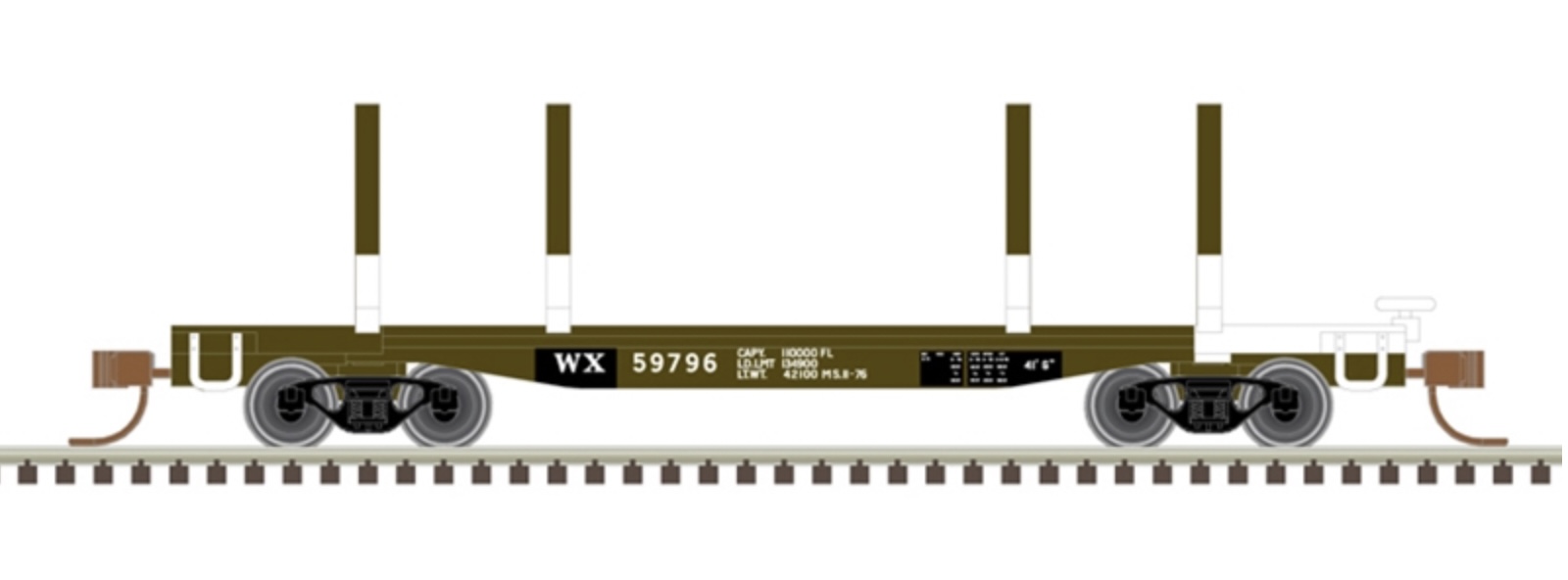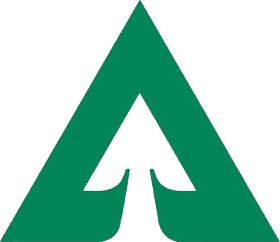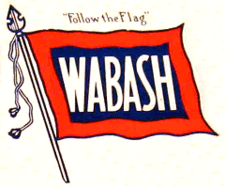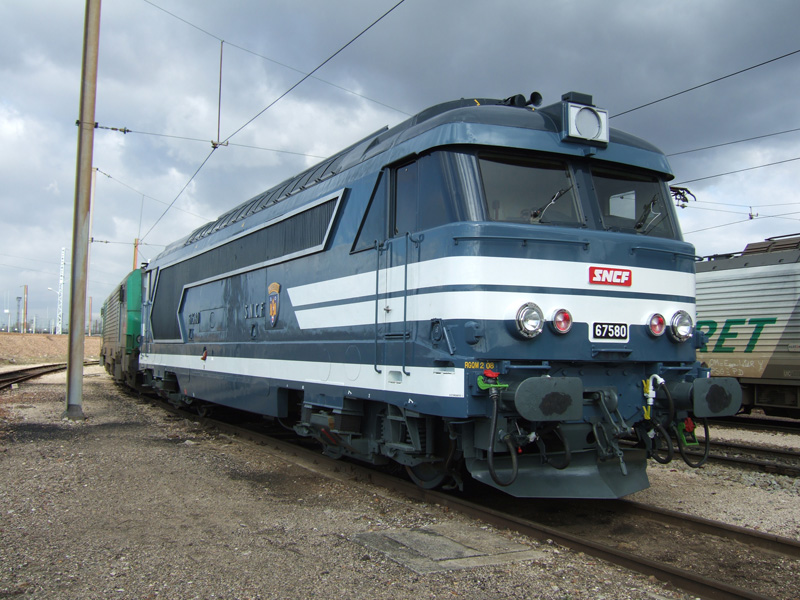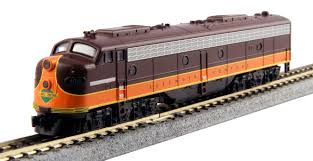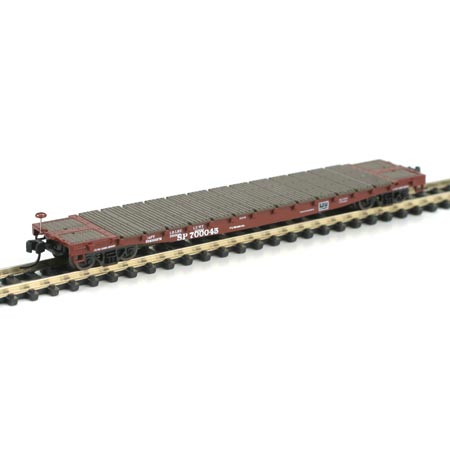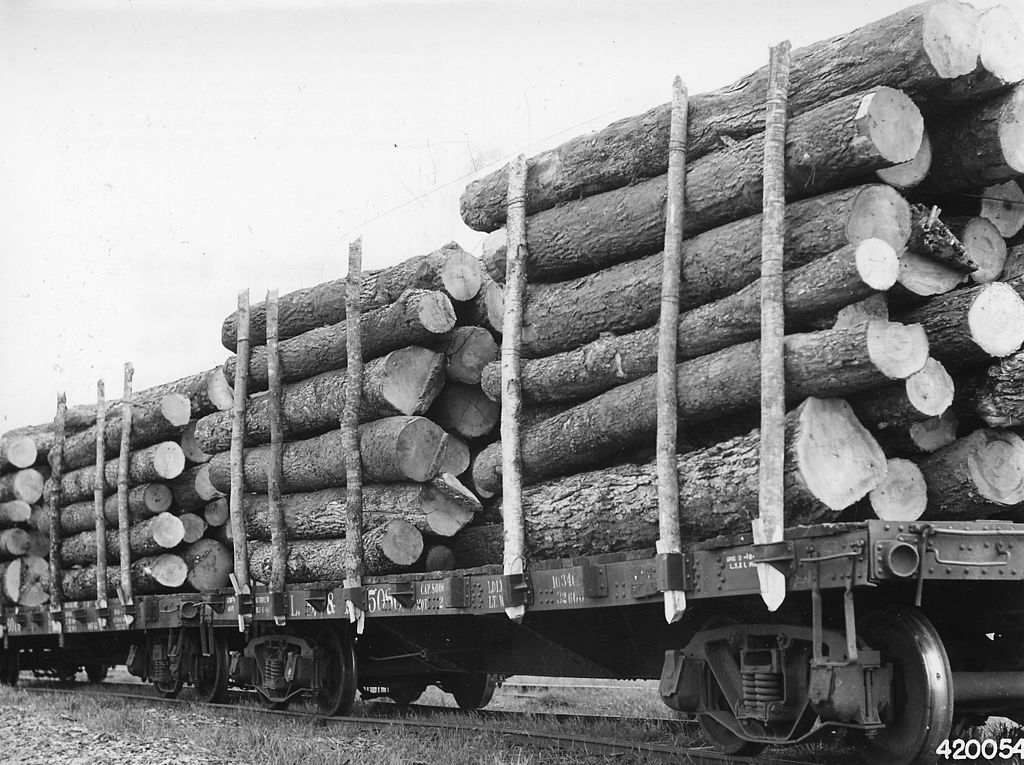Atlas - 50 006 277 - Flatcar, Logging - Weyerhaeuser - 59917
Click to see the details
market
| Production Type | Announced |
| Stock Number | 50 006 277 |
| Secondary Stock Number | 50006277 |
| Original Retail Price | $29.95 |
| Brand | Atlas |
| Manufacturer | Atlas |
| Body Style | Walthers 45' Logging Flat Car |
| Image Provider's Website | Link |
| Prototype Vehicle | Flatcar, Logging (Details) |
| Road or Company Name | Weyerhaeuser (Details) |
| Reporting Marks | WX |
| Road or Reporting Number | 59917 |
| Paint Color(s) | Brown |
| Print Color(s) | White & Black |
| Coupler Type | AccuMate Magnetic Knuckle |
| Wheel Type | Injection Molded Plastic |
| Wheel Profile | Small Flange (Low Profile) |
| Announcement Date | 2022-06-17 |
| Item Category | Rolling Stock (Freight) |
| Model Type | Flatcar |
| Model Subtype | 45 Foot |
| Model Variety | Logging |
| Prototype Region | North America |
| Prototype Era | All Eras |
| Scale | 1/160 |
Model Information:
Introduced in October 1998, with a second run in 2007.
Walthers ready-to-run 45 Foot Logging Flat Cars feature a die-cast body, styrene details, free-rolling trucks and standard (Rapido) couplers - Accumate couplers for the second run.
Models were available in three-packs ($26.98) or as singles with a fourth road number ($8.98), in six road names and undecorated. In the second run, models were available as single ($10.98) or in two-packs ($21.98).
Re-run under Atlas brand in 2019 after Atlas purchased the tooling from Walthers.
Here is how Walthers described them:
The 45 Foot Logging Flat Car is the trademark of logging railroads. Based on converted flat cars, the cars have four log bunks, a center sill, and a partially open deck. Some logging railroads ran entire trains of such cars.
Walthers advertised concurrently its Mountain Lumber Company Sawmill (933-3236), with these words "Long trainloads of these cars will look great arriving at Mountain Lumber Company Sawmill, also available in October".
Walthers ready-to-run 45 Foot Logging Flat Cars feature a die-cast body, styrene details, free-rolling trucks and standard (Rapido) couplers - Accumate couplers for the second run.
Models were available in three-packs ($26.98) or as singles with a fourth road number ($8.98), in six road names and undecorated. In the second run, models were available as single ($10.98) or in two-packs ($21.98).
Re-run under Atlas brand in 2019 after Atlas purchased the tooling from Walthers.
Here is how Walthers described them:
The 45 Foot Logging Flat Car is the trademark of logging railroads. Based on converted flat cars, the cars have four log bunks, a center sill, and a partially open deck. Some logging railroads ran entire trains of such cars.
Walthers advertised concurrently its Mountain Lumber Company Sawmill (933-3236), with these words "Long trainloads of these cars will look great arriving at Mountain Lumber Company Sawmill, also available in October".
Prototype History:
Among the earliest types of freight cars, flatcars continue to serve as a valuable part of railroading. Flatcars are used to move a wide variety of loads which do not require protection from weather. These cars, are constructed with steel underframes, wood floors and stake pockets on the sides and ends for fastening tie-downs that keep loads from shifting.
Logging flat cars are a specialized type of flatcar converted to carry logs, with the addition of log bunks or upright stake posts secured in stake-pockets available on the side of the flatcar.
Logging flat cars are a specialized type of flatcar converted to carry logs, with the addition of log bunks or upright stake posts secured in stake-pockets available on the side of the flatcar.
Road Name History:
Weyerhaeuser (pronounced "Warehouser") Company, is one of the world's largest private owners of timberlands, owning or controlling nearly 12.4 million acres of timberlands in the U.S. and managing additional 14.0 million acres timberlands under long-term licenses in Canada. The company also manufactures wood products. Weyerhaeuser is a real estate investment trust.
In 1904, after years of successful Mississippi River-based lumber and mill operations with Frederick Denkmann and others, Frederick Weyerhaeuser moved west to fresh timber areas and founded the Weyerhaeuser Timber Company. Fifteen partners and 900,000 acres (3,600 km²) of Washington timberland were involved in the founding, and the land was purchased from James J. Hill of the Great Northern Railway. In 1929, the company built what was then the world's largest sawmill in Longview, Washington. Weyerhaeuser's pulp mill in Longview, which began production in 1931, sustained the company financially during the Great Depression. In 1959, the company eliminated the word "Timber" from its name to better reflect its operations. In 1965, Weyerhaeuser built its first bleached kraft pulp mill in Canada. Weyerhaeuser implemented its High Yield Forestry Plan in 1967 which drew upon 30 years of forestry research and field experience. It called for the planting of seedlings within one year of a harvest, soil fertilization, thinning, rehabilitation of brushlands, and, eventually, genetic improvement of trees.
In 1904, after years of successful Mississippi River-based lumber and mill operations with Frederick Denkmann and others, Frederick Weyerhaeuser moved west to fresh timber areas and founded the Weyerhaeuser Timber Company. Fifteen partners and 900,000 acres (3,600 km²) of Washington timberland were involved in the founding, and the land was purchased from James J. Hill of the Great Northern Railway. In 1929, the company built what was then the world's largest sawmill in Longview, Washington. Weyerhaeuser's pulp mill in Longview, which began production in 1931, sustained the company financially during the Great Depression. In 1959, the company eliminated the word "Timber" from its name to better reflect its operations. In 1965, Weyerhaeuser built its first bleached kraft pulp mill in Canada. Weyerhaeuser implemented its High Yield Forestry Plan in 1967 which drew upon 30 years of forestry research and field experience. It called for the planting of seedlings within one year of a harvest, soil fertilization, thinning, rehabilitation of brushlands, and, eventually, genetic improvement of trees.
Brand/Importer Information:
In 1924 Stephan Schaffan, Sr. founded the Atlas Tool Company in Newark, New Jersey. In 1933 his son, Stephan Schaffan, Jr., came to work for his father at the age of sixteen. Steve Jr. built model airplanes as a hobby and frequented a local hobby shop. Being an enterprising young man, he would often ask the owner if there was anything he could do to earn some extra spending money. Tired of listening to his requests, the hobby-store owner threw some model railroad track parts his way and said, "Here, see if you can improve on this".
In those days, railroad modelers had to assemble and build everything from scratch. Steve Jr. created a "switch kit" which sold so well, that the entire family worked on them in the basement at night, while doing business as usual in the machine shop during the day.
Subsequently, Steve Jr. engineered the stapling of rail to fiber track, along with inventing the first practical rail joiner and pre-assembled turnouts and flexible track. All of these products, and more, helped to popularize model railroading and assisted in the creation of a mass-market hobby. The budding entrepreneur quickly outgrew the limitations of a basement and small garage operation. Realizing they could actually make a living selling track and related products, Steve and his father had the first factory built in Hillside, New Jersey at 413 Florence Avenue in 1947. On September 30, 1949, the Atlas Tool Company was officially incorporated as a New Jersey company.
In 1985, Steve was honored posthumously for his inventions by the Model Railroad Industry Association and was inducted into the Model Railroad Industry Hall of Fame in Baltimore, Maryland. In addition, Steve was nominated and entered into the National Model Railroad Association Pioneers of Model Railroading in 1995.
In the early 1990s, the Atlas Tool Company changed its name to Atlas Model Railroad Company, Inc.
In those days, railroad modelers had to assemble and build everything from scratch. Steve Jr. created a "switch kit" which sold so well, that the entire family worked on them in the basement at night, while doing business as usual in the machine shop during the day.
Subsequently, Steve Jr. engineered the stapling of rail to fiber track, along with inventing the first practical rail joiner and pre-assembled turnouts and flexible track. All of these products, and more, helped to popularize model railroading and assisted in the creation of a mass-market hobby. The budding entrepreneur quickly outgrew the limitations of a basement and small garage operation. Realizing they could actually make a living selling track and related products, Steve and his father had the first factory built in Hillside, New Jersey at 413 Florence Avenue in 1947. On September 30, 1949, the Atlas Tool Company was officially incorporated as a New Jersey company.
In 1985, Steve was honored posthumously for his inventions by the Model Railroad Industry Association and was inducted into the Model Railroad Industry Hall of Fame in Baltimore, Maryland. In addition, Steve was nominated and entered into the National Model Railroad Association Pioneers of Model Railroading in 1995.
In the early 1990s, the Atlas Tool Company changed its name to Atlas Model Railroad Company, Inc.
Item created by: CNW400
on 2022-06-20 11:42:17
Last edited by: CNW400 on 2022-06-20 11:42:18
If you see errors or missing data in this entry, please feel free to log in and edit it. Anyone with a Gmail account can log in instantly.
Last edited by: CNW400 on 2022-06-20 11:42:18
If you see errors or missing data in this entry, please feel free to log in and edit it. Anyone with a Gmail account can log in instantly.


